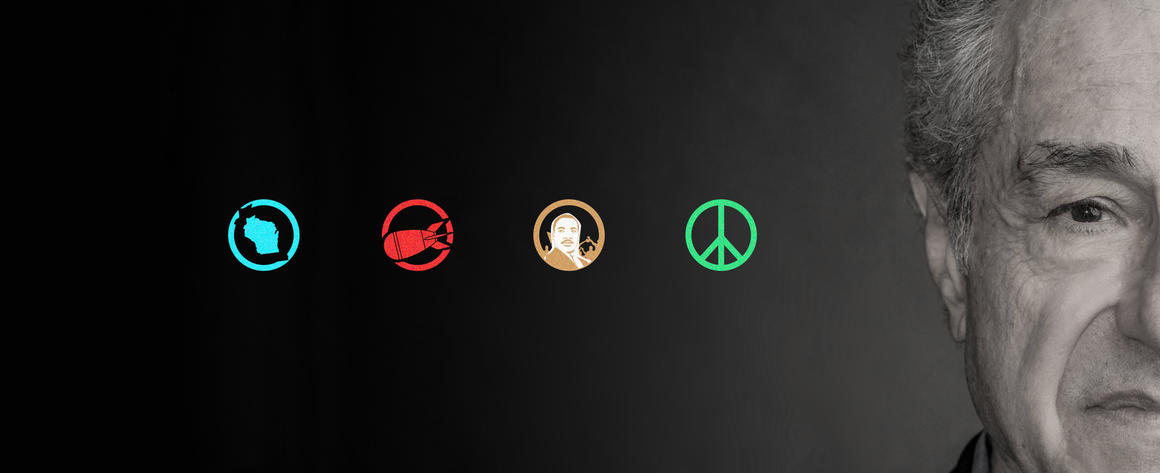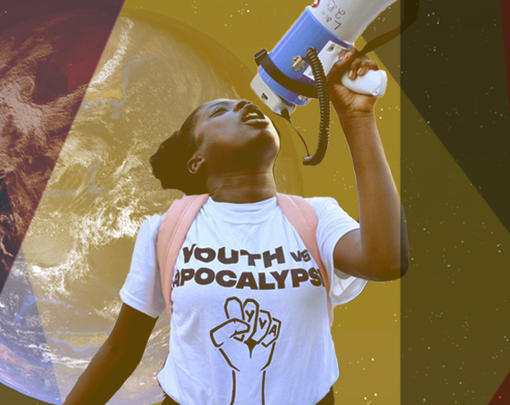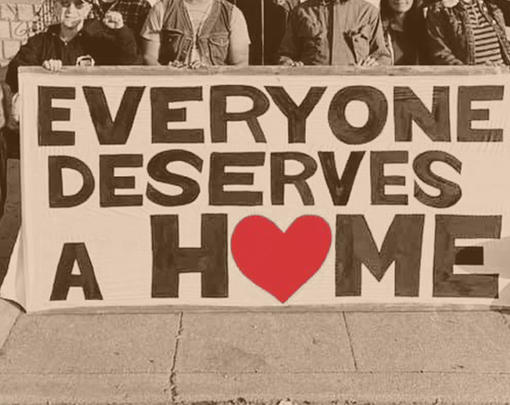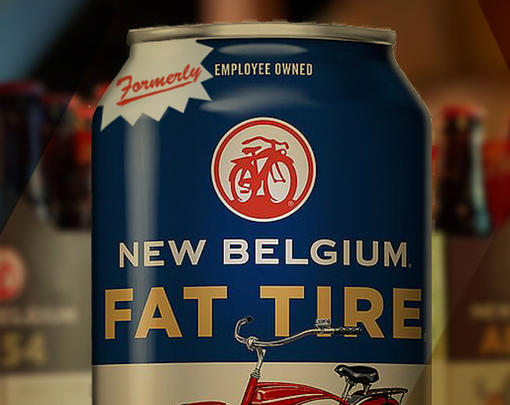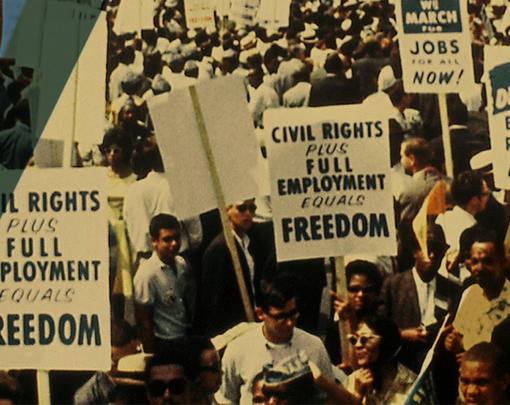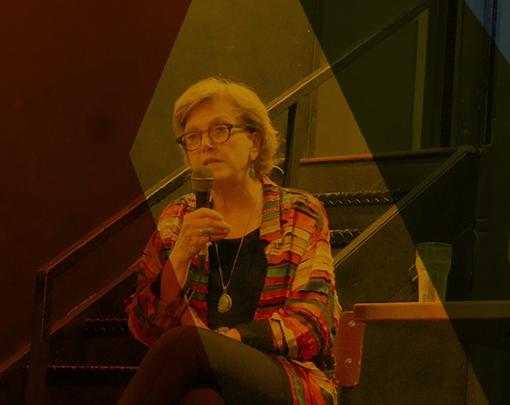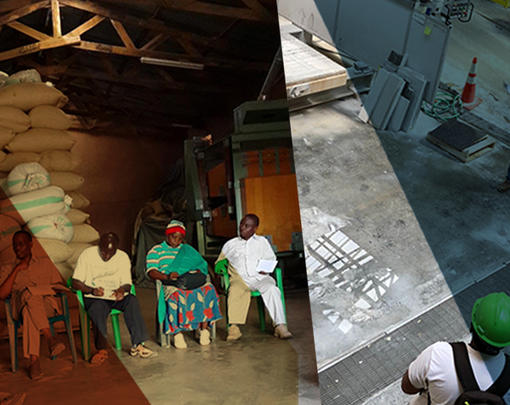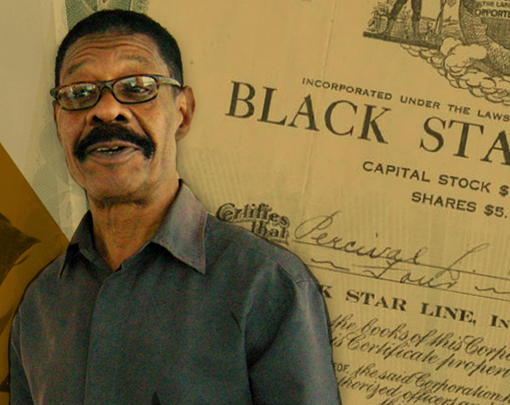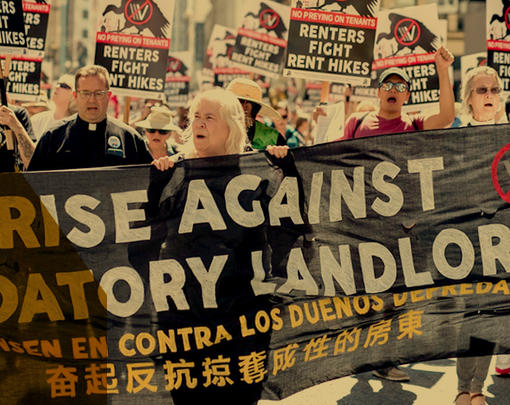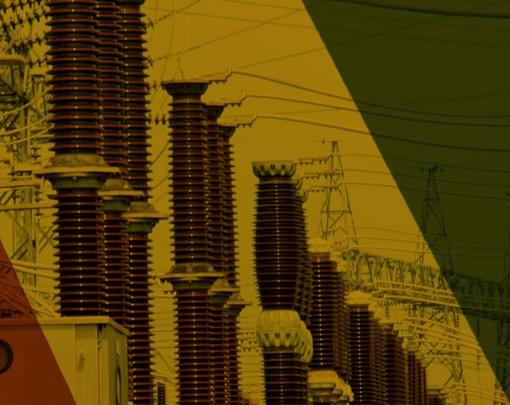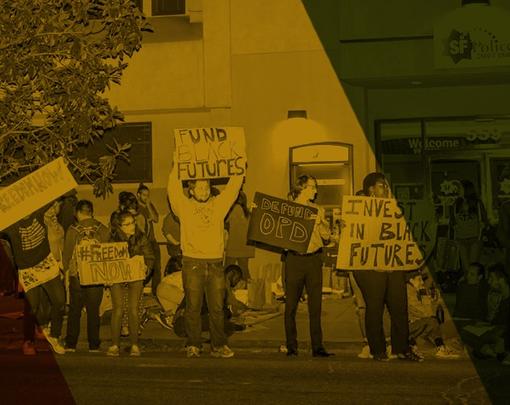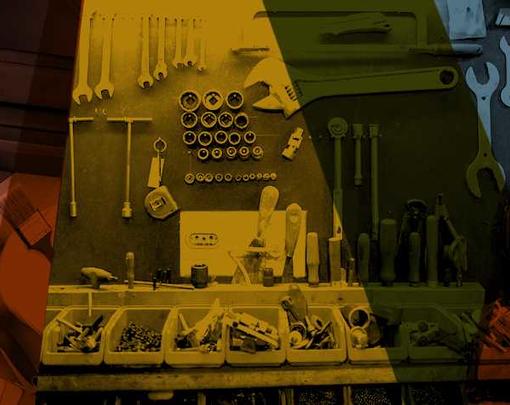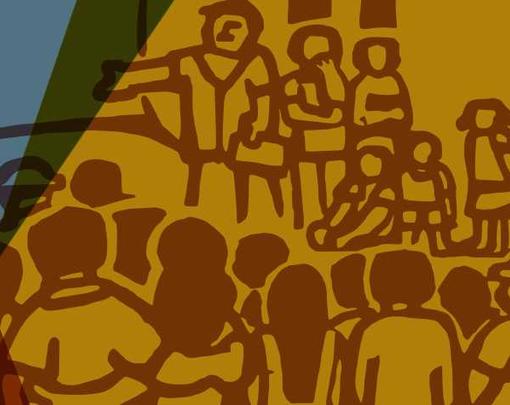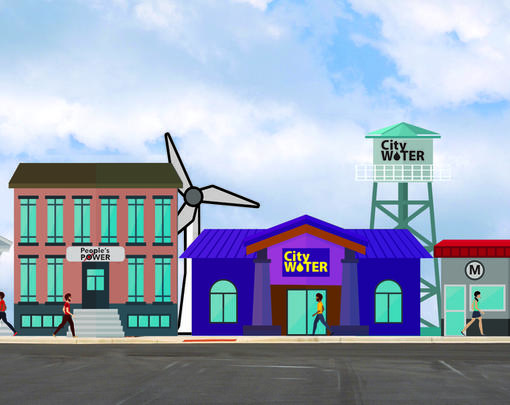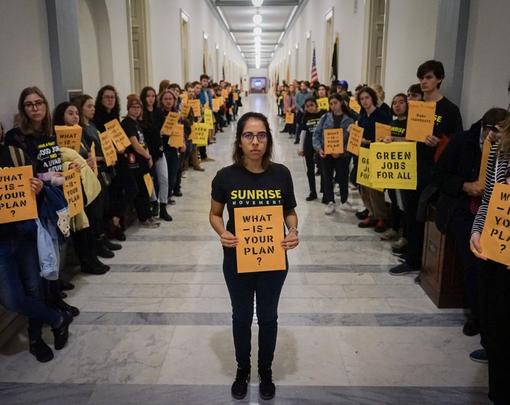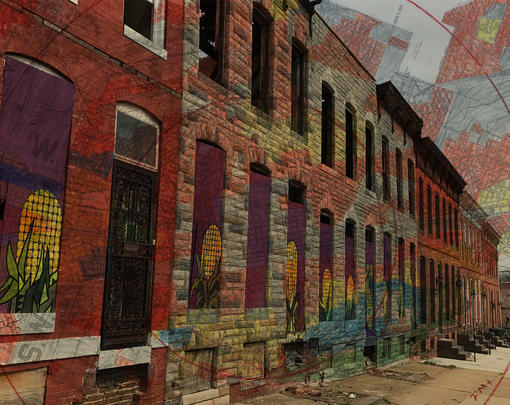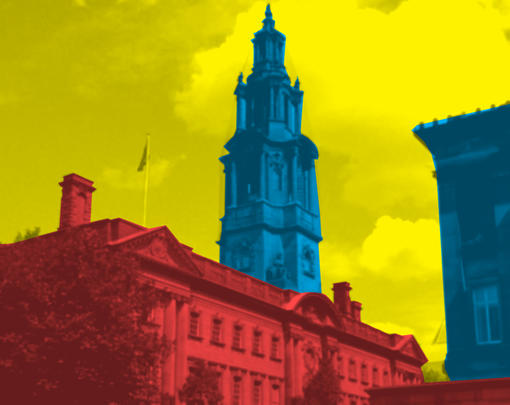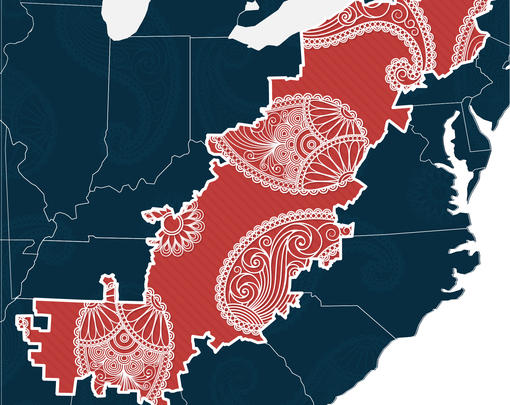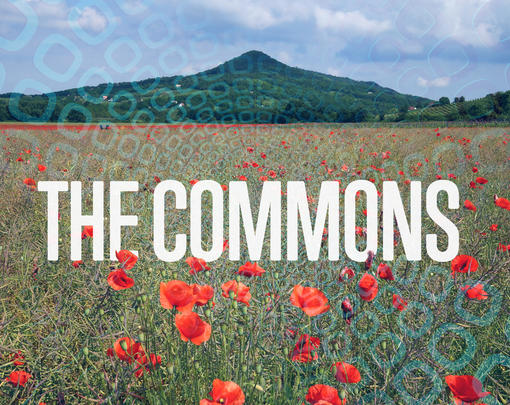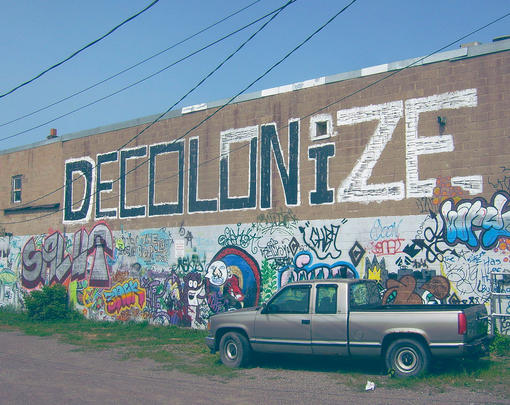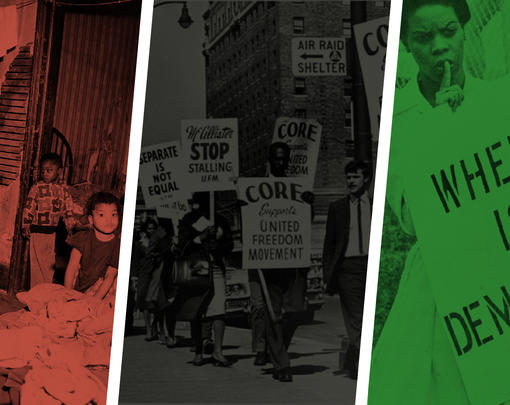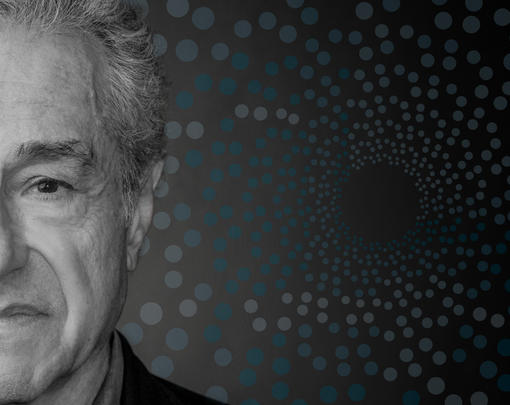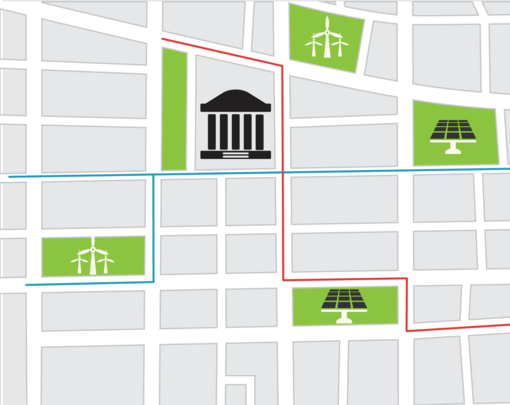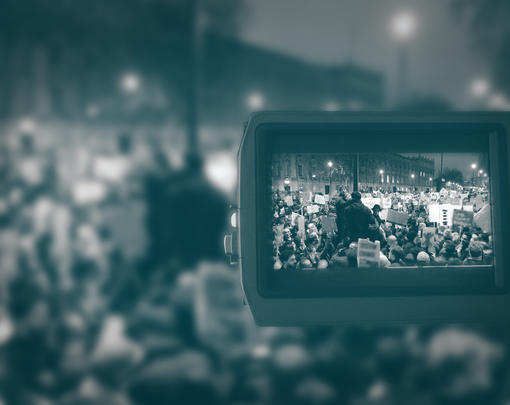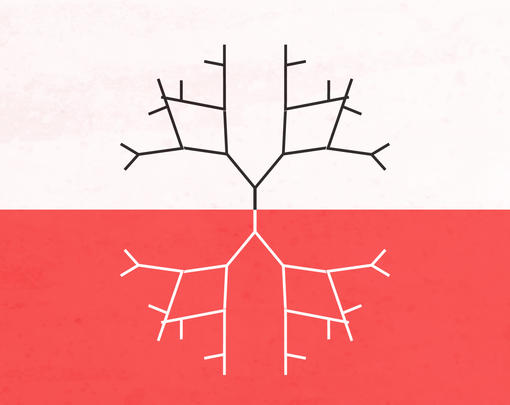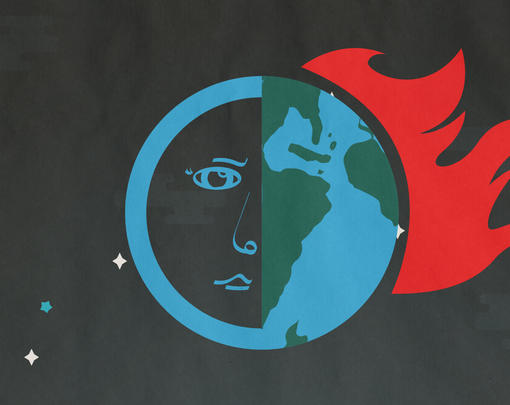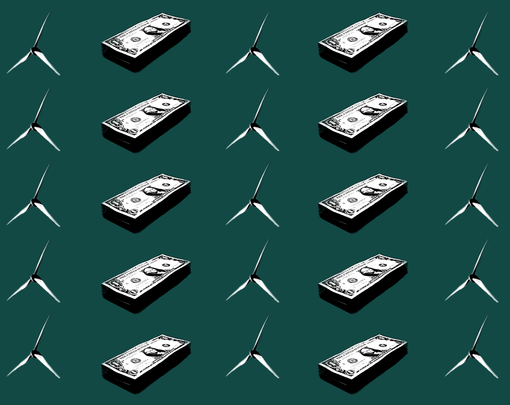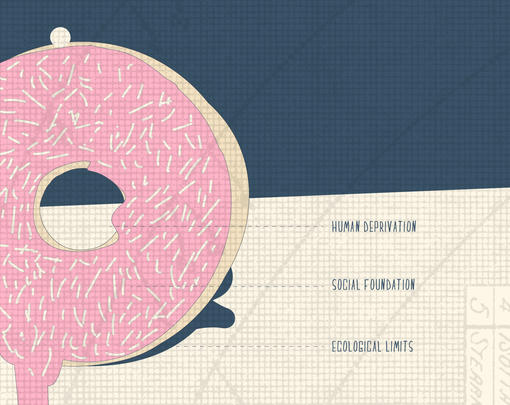In the first of a two-part interview, The Next System Project’s Co-Chair Gar Alperovitz describes his journey toward system change and what is myriad experiences tell him about our present political and economic circumstances. In part-two, scheduled for next week, Gar will be talking about ‘What Comes Next’ and describes his own model, the Pluralist Commonwealth
Subscribe to the Next System Podcast via iTunes, Soundcloud, Google Play, Stitcher Radio, or RSS.
Adam Simpson: Welcome back to The Next System podcast. I’m your host, Adam Simpson. Joining us today is the co-chair of The Next System project, Dr. Gar Alperovitz. Gar has had a distinguished career as a historian, political economist, activist, writer, and government official. He is the author of many books, including America Beyond Capitalism, What Then Must We Do? and recently, Principles of a Pluralist Commonwealth, available online for free at thenextsystem.org.
And today, we’ll be talking about his myriad past experiences and how they inform his view on our current context.
Gar, welcome back to The Next System podcast.
Gar Alperovitz: Thanks for having me.
Adam Simpson: So I do want to start by asking you about your trajectory toward the left. I think everyone has an interesting story about how they find their way to this perspective on politics, and I wanted to ask kind of broadly about how you think about how found your way to left politics?
Gar Alperovitz: I’m from Racine, Wisconsin, which is a sort of a dying industrial town now, about 80,000 people. But it was a community of some kind, and it had a sense of community. I always tell the story about the Racine Zoo, where they didn’t have an elephant for years. They put up a big, sort of paper mâché elephant, gigantic, with a slot for people to donate money. And finally, they got their elephant.
The high school I went to, the kids were middle-class people, industrial people, farmer kids, black kids, very mixed. At that time, we obviously elected the black kid president, because that was the way it was done in Wisconsin.
It was not a class politics as much as a communitarian quality. I think that was the foundation, most important. My parents were involved in community things, but very middle-class things. My father was president of the temple; my mother was involved in the cancer society. But it was taken for granted that you did things for the community. So I think that’s really the foundation for me, rather than a traditional left politics.
And at the University of Wisconsin, I ran into William Appleman Williams, the famous radical historian, who was obviously radical, but also very tuned to questions of community and theory. His theory of change was much broader than the traditional Marxist one. His theory of imperialism had to do with how it was the ideas were formed around visions of imperial structure. His first big book was called The Tragedy of American Diplomacy, and he genuinely saw it as a tragedy. That is, the Americans were trying to do good, and they were creating an imperial structure.
So it was not a knee-jerk way of thinking about capitalism and socialism, about radical change. That’s what turned me around. I was a pre-med, and I have a Bachelor of Science degree in American History, because I had changed over, obviously, from pre-med to history because of Williams.
The Wisconsin history department, at that point, was explosive. And there was a guy named George Mosse who was a European intellectual historian, who was really impressive, and Merle Curti, who was another … These are very famous historians. The department was very strong. But Williams was the key figure who really challenged me and others, and made us think in a different way. Made me think in a different way.
Adam Simpson: Right. And you, as I understand it you were focused mostly on foreign policy, and you eventually went to Washington and worked with Senator Gaylord Nelson, and found your way to the State Department. Is that correct?
Gar Alperovitz: One of the problems about being at Wisconsin is that the economics department was pretty traditional. So I didn’t really understand, and I was puzzled by, theories of imperialism, economic theories, and particularly Marxist, but not only Marxist theories. There were many theories that projected the expansionary nature of capitalism, not simply Marxist views of this … Having to search out markets, having to find ways to invest capital, creating the impulse towards imperialism. And I didn’t know enough economics to think that through, and I felt I really needed to do that.
And in a way, the immersion in the history and theory sheltered me, and I also felt that I wasn’t adequately prepared to think through particularly the economic side of it. So I went to Berkeley, in theory to learn some economics, and I did learn some from a famous economist there at that time, Tibor Scitovsky, who was a left liberal, but I also went down to Stanford, because you were allowed to take courses down there with Paul Baran, the only Marxist economist then teaching in the United States. Stanford was so established that they could have a Marxist.
Adam Simpson: They could get away with it.
Gar Alperovitz: They could get away with it, and they were too established. It didn’t matter. And Baran was interested. He was writing a book called Monopoly Capital with Paul Sweezy at that time. I was getting the left-liberalism from Scitovsky, and Minsky was also there. Minsky was on my committee, though I didn’t know him very well. So that was an immersion. But I came away not really feeling strong enough, and ultimately, I went to England and really learned some economics after that at Cambridge. I had a Marshall Scholarship, but I had mistakenly said I wanted to go to the London School of Economics, because that had been the home of the left. And I hadn’t done my homework, and realized that the Economics Department had been taken over by neoclassical people.
But I was still interested in the department. There’s a book by Rosa Luxemburg, Theory of Imperialism, and I was reading that. Again, searching to decide whether I really believed this set of ideas that was being developed—the imperial thrust of the Marxist view, but not only in the Marxist view. Was the economics that powerful?
And Joan Robinson had written an introduction to the Rosa Luxemburg English edition, and she was able to explain it in left Keynesian terms, and I got very interested in her work. So I contacted her at Cambridge and said I wanted to come up and talk to her. I was very eager and intense. And so she said, “Sure, come ahead.”
And so I really went at her about the introduction to this book about why capitalism had to expand. “Was that really true? Was that really … Did you really believe what … these various theories?” And so we had an intense conversation, so I said, “This is great. I want to come here and study…” It was right in the middle of the semester. She picked up the phone, and said, “Richard, I have a very keen American here. Would you admit him to King’s College tomorrow?”
And that’s how I moved to Cambridge. The English always have exceptions for rules. And so, I really learned my economics there with Joan Robinson and other really competent economists. Piero Sraffa was there, who was a very famous economist at the time.
Adam Simpson: Who had some connection to Antonio Gramsci, as I understand.
Gar Alperovitz: Very close friend with Gramsci and political comrade with Gramsci, but also a specialist on Ricardo. Ricardo was his model, and he produced a book called Producing Commodities by Commodities. It was production of goods by goods. It’s a way of thinking about relationship between products rather than marginal productivity theory or Keynesian theory. Maurice Dobb who was a well-known Marxist at that point, Nicky Laldor, it was a very famous group of economists, it was a very hot moment in Cambridge. I took no classes. What I’d do is pick a book … Joan and I would sit down and pick a book and I’d read the book and come back and argue with her once a week. That was great training, but very expensive training. You can’t do that for every student.
Adam Simpson: Earlier, you were talking about Wisconsin and growing up in a communitarian environment. The rust belt and the industrial towns like Racine have changed since then as certain processes of deindustrialization and certain economic problems have withered away at communities like this in this region. There’s been a lot of talk recently about the white working class in the rust belt, and Wisconsin itself. Now you have people like Scott Walker, very anti-union. You have the state represented by Paul Ryan, and Ron Johnson and other people that wouldn’t be associated with at all, a kind of communitarian perspective. Understanding that different parts of Wisconsin are different. I was wondering if you had a take on the changes that Wisconsin and that area has endured that’s led to these political occurrences.
Gar Alperovitz: A lot of it’s about money. Basically with the collapse of unions, and the destruction of unions there’s not much of a financing base for liberal politics, or left politics. There’s a big financing base for right wing politics. So that being said, Wisconsin’s gone back and forth. It’s the home of progressives and the “Fighting Bob” Follete era. But also the home of McCarthy well before this modern period. It’s had this odd swing back and forth from different kind of politics, for more than 100 years. My view of it is not as simplified as some people look at it in the current frame. McCarthy was very solid. When I went to high school McCarthy was around, nobody thought you can challenge anything.
My high school teachers were frightened to death of saying the wrong thing—that’s one of the things about McCarthy that’s neglected: most people think about it nationally. Schools across the country were really impacted by McCarthy at the local level. Great fear. But Gaylord Nelson was a very progressive governor, and he came up in the same context during the McCarthy era, so it’s much more complex. Deindustrialization and the loss of union power is really important now. Unions kept the progressive, liberal impulse alive for a long time even in the McCarthy era. So I think the collapse of unions is a big deal.
That was an institutional shift, a radical institutional shift from the time that I was in Wisconsin. Unless we build new institutions as well as new politics I don’t think we’re gonna reverse these trends.
Adam Simpson: Well, I don’t want to jump the gun too much but while we’re on that subject, but do you think that unions in the traditional sense can provide the kind of power for labor and the working class that they used to, or do you think we need new models?
Gar Alperovitz: I think basically it’s over.
Adam Simpson: It’s over?
Gar Alperovitz: Yeah. I think for the most part American unions, and this has happened around the world, but particularly in the United States where we always had a very weak union structure. The Swedes were—what 80-85% of the labor force organized, we peaked at 34%. A lot of that’s about race and racial discrimination: it’s very hard to organize national unions when a whole piece of the country, the South, simply had no unions by virtue of not only racial bias, but racialized violence and oppression of political activity. The Ku Klux Klan was supported by the establishment in the South, and that made labor unions as well civil rights organizing all but impossible for decades. I don’t think labor’s going to come back as a significant countervailing power through a union structure, that’s a pipe dream.
Adam Simpson: Could worker ownership perhaps provide a lever of power that unions once provided?
Gar Alperovitz: Well, I should clarify what I think about worker owned companies, worker ownership in the limited sense. I think that worker owned companies often become worker capitalist companies, and they don’t become worker socialist companies very often. They tend to externalize cost because they have to, the market drives them to. I think they do create an idea about democratizing ownership, but I think that progressives have not been careful about thinking about this. I think the model, I’m sure we’re going to talk about it in Cleveland, which embeds cooperative ownership in a community structure has much more to offer for it than straight worker ownership and particularly ESOPS, which are the dominant form. And it’s very, very hard to organize worker ownership through worker co-ops. The last number I saw was maybe 400 or 500, maybe 600 in the whole country. Most of the worker-owned companies are ESOPS, employee stock ownership plans, and most of those are marginal parts of larger corporations. So we should come back to how we think about worker ownership. Because I think there is a way to think about it that’s valuable, but I’m not convinced by the idea that any worker co-op, or any worker owned company, is going to do the job.
Adam Simpson: Sure. I do want to come back to your story. You mentioned in particular that most people don’t realize that during the McCarthy era you being in Wisconsin where he was from, the schools were a place of great fear. What was it like being a student with more progressive tendencies both at the university level, and once you came to Washington? What was your perspective being on the left during this particular moment, and how do you think of that, as today when we have political candidates using the S word as it were?
Gar Alperovitz: It was an exciting change. I was not very left in high school. I became interested, and became involved in thinking about left politics at the university. That’s where it happened. At that point, the House Un-American Activities Committee was still very active. McCarthy I think died in the late 50s early 60s, I’m not sure exactly when, but late 50s I think. The House Un-American Activities Committee, which was pretty intense, was going after Wisconsin politicians, particularly the congressman who represented Madison, a very liberal congressman named Kastenmeier, was being attacked and Williams was called before the Committee as well. My thoughts were in formation at Wisconsin—I wasn’t involved in left organizations. I did play a role in saving one of the left organizations from being thrown out because the HUAC was after them. But we kept them at the university from the civil libertarian position.
Adam Simpson: I know that you’ve observed social movements from the civil rights movement, to efforts to end the Vietnam War. You’ve studied transformations across the economy, in particular in Youngstown. How do you normally think about a theory of change, especially with respect to bottom up versus top down, because I know you had experience in government, and you’ve also had tremendous experience organizing outside of government? What is your perspective on bottom-up versus top-down?
Gar Alperovitz: I think people over simplify it. I think that there are different moments when very different things can be done at different levels. There is the possibility of building from the bottom. You’ve got to have that or you don’t get fundamental change. That’s just clear to me. That doesn’t mean you can’t get a national leader like Bernie, who’s operating at the level of national speeches, and all of a sudden he ignites something that nobody knew was there.
So, Martin Luther King did the same thing. He was working locally, that’s who he was, in the bus strike. That was a very, very local effort by a very, very young, unknown guy. Organizers who’d never organized before, and they organized locally. So it’s very important, but also when he became a national figure he used his national power. So, I think it can be oversimplified would be another way to say it. That in a way, I think progressive movements have to test at various levels, and find something they can get real explosions out of very local things, and sometimes nationally.
Adam Simpson: Well you mention Martin Luther King. I know that you had some occasion to correspond with him in various ways, and I know he eventually began to pick up opposition to the Vietnam War. He was thinking about different forms of economic planning, and how the economy relates to civil rights. I wanted to ask specifically: what do you think about this movement for racial justice? How do you think the pursuit for racial justice inevitably led to questioning the nature of our economy? What were your observations of how the social movement moved in that direction?
Gar Alperovitz: There’s lots of pieces to that puzzle. I knew King, and I worked with him on a couple of things, and particularly on this issue. You know Mississippi and the Mississippi Freedom Party, and the civil rights movement in the south in the early 60s had a really very important kind of crystallizing moral impact. I went down to Mississippi: I was not involved in Mississippi, I was working in the Senate, but I went down to Mississippi and went around the state with Bob Moses, who was one of the key leaders, as a Senate representative. But I went down, because I just wanted to be involved and see. I met King and I met Moses and I worked with them at Atlantic City, which was the major time that the Mississippi Freedom Democratic party tried to be seated. I was involved in trying to help them. Gaylord Nelson who was the Senator let me do that. I was on his staff then—Johnson was after him for letting his staff help these guys who were challenging the President. It was a very morally moving and powerfully engaging experience just to go down there.
Also, the demonstration of courage was important. We went around the state, driving around the state with Bob Moses who was the leading radical. We were followed by troopers at every place that’d come in. These were guys with guns in their front seat, we would stay with local black farmers where there was always a shot gun next to the door. It was a demonstration of something that I didn’t have in my own experience, which was people taking really, really courageous stands against major danger. People were being killed.
Certainly tortured and being beaten. So that was I think one of the big learning experiences for me. And working with King. King helped us start something called Vietnam Summer, which was a summer organizing project against the Vietnam War in 1967.
Adam Simpson: I’ve heard a certain term thrown around called ‘Alperovitzing’ during this time period as well…
Gar Alperovitz: Yeah, that’s a slightly separate term. I was working in the House, and a bunch of Harvard students who pre- SDS, they had an organization called “Tocsin.” “Sound the Tocsin.” Todd Gitlin, who’s a well known writer now, was one of those kids at that point. They came down to Washington, I was working for this congressman Kastenmeier, and they really wanted to make things happen. I basically said look, most Congressmen—there were very few women in Congress at that time—are like weather vanes. If you can make the wind blow they will do what you want, but talking in their ear is not gonna do it. So go back home and organize something.
It seems obvious. But it wasn’t obvious to them, and they went back to Cambridge and to Harvard and they started organizing in the neighborhoods to do this and they called it ‘Alperovitzing.’ So I became a verb.
Adam Simpson: Interesting. You were talking about the Vietnam Summer…
Gar Alperovitz: Vietnam Summer was an organization that I helped put together, and the notion was, at that time, there were many, many anti-war groups. Some were very radical, and some were very cautious: the whole spectrum of anti-war organizing. They were contending for position, and frightened of each other, and you know: it’s politics and organizing. So we set up something, a summer project, not an organization. All these efforts that promised to go out of business at the end of the summer, and wouldn’t be a threat to any of the prerogatives of the groups involved. And that worked actually, so we got a major boost in organizing for 1967 summer, and it kind of boosted all the organizations. It boosted everything from very radical stuff to housewives baking cookies for anti-war bake sales.
It was also an important moment for feminism in radical politics. The secretaries involved in Vietnam Summer, mostly women, revolted. There’s a book written about the revolt of the secretaries in Vietnam Summer where you see the radical impulses of feminism shaping this organizing effort.
Adam Simpson: Interesting! I do want to turn to some of the work you’ve done as a political historian. It occurs to me that we’re having this conversation in October 2017, a hundred years after what’s arguably one of the most kind of electrifying political moments. October 1917, and the Russian revolution. I feel like I’m compelled to ask you, a hundred years later what this massive historical moment means to you as someone on the left. I know people think about it in different ways.
Gar Alperovitz: It was an aberration. That’s the first thing to say about it because you can overanalyze it otherwise. Had there not been a massive war going on, a revolution of that kind probably would not have taken place. So, it’s an oddity. Then, obviously what came out of it became the worst form of authoritarianism… It had hoped to be a socialist revolution and it became an authoritarian revolution. That said, people often look at the underdeveloped nature of the Russian economy and Russian political culture, all very, very primitive, to explain why it would be very surprising if they’d gotten a real democracy out of the revolution, but what’s rarely discussed, what people forget, is that it was under very severe attack including an American invasion.
With the West supporting the white reactionaries, the notion of clamping down became part and parcel of the pressures from the outside. What might have happened had there been a welcoming perspective to build the more positive side of revolution? We don’t know because there was this knee jerk effort to put it down because it was communist … They might very well have developed a different path had the West had a different view. It’s a tragedy in that respect. A genuine tragedy that it was not allowed to develop, encouraged in a different way. Stalin, the Russians after World War II, were desperately begging for, and had been promised a large reconstruction loan. And again, had that happened, had we used this power to build up a different possibility rather than to challenge them in their most fearful security areas, who knows what may have happened in that revolution? It still posed the question, which is still with us, of how we get beyond these systems that are so inequitable and destructive and militarized, including our own.
Adam Simpson: Why do you think capitalism has proven so durable over the 20th century, with socialism in some respects on the margins in some areas, on the march in other areas, but in a lot of ways confined to smaller scale experiments?
Gar Alperovitz: It’s interesting, I see the future very different, as emerging in a new way. The thing about the 20th century, and it’s really so obvious, but also so easy to forget, is that it is controlled by massive war. I mean, you’ve got massive world war in the first quarter of the century, you’ve got a major collapse, which might very well have gone to the left, with the great depression, and did go left in many parts of the world. Then you’ve got a massive war, World War II, then you’ve got Vietnam, Korea, the whole third part of the 20th century. So war is a big part of the imposition on the normal development path, whatever that might be. I think we’re moving beyond massive war. That doesn’t mean it is impossible. We might destroy ourselves. But I think nuclear weapons prevent the massive kind of industrial scale war that dominated the structure of politics and change in the 20th century.
So, I think there’s a whole new development occurring in the United States, and Europe, and elsewhere that opens the way for nontraditional ways of developing new directions. The kinds of things we’re talking about have got an interesting future. They’re evolutionary. They’re not revolutionary. They might at some point have revolutionary implications. Left of center parties, like Bernie’s wing of the Democrats, are picking up on these ideas of changing who owns capital, which is the central question. I’m reasonably optimistic about the emerging period. And people don’t focus on it, but the role of war is diminishing. We’ve certainly had a lot of nasty wars but they’re at the level of 2% or 3% of the GDP. Military spending is only about 3.3% of the GDP. Very minor, compared with what I think was 14% during the Korean war.
So that’s declining, and nuclear weapons prevent I think—and hope—massive industrial war like the first and second world war. So the phenomenon of massive war on a global scale, which blocked a lot of change, is on the way down. Which I think opens the way to bigger changes in different parts of the world. This includes the fact that war was our major economic stimulus program, and without it you get discontent in the advanced systems. The United States is the perfect example. The boom period of the third quarter of the 20th century was dominated by military spending. And in fact, World War II had destroyed the US’ competitors, so US had a very profitable boom period, attributable economically to the impacts of industrial scale warmaking. That’s gone, or it’s way on the way down. So I think we’re going to see more decay and more organizing, and more politics, but not collapse. I think it’s the most important period of American history, and I would put it all the way back to the revolution. I think it’s a big deal, the emerging period.
Adam Simpson: It strikes me that when we’re talking about war as kind of one of the defining characteristics of the 20th century, certainly in the latter half of the 20th century, was the use of war in different parts of the world to prevent and subvert socialist and farther left revolutions.
Gar Alperovitz: I think you’re absolutely right, the attempt to subvert is certainly there. In the CIA and military operations as well. But I think it’s a decaying capacity. In the end we’re coming to terms with the Cuban revolution, finally. There certainly will be ongoing attempts at subversion—I don’t doubt that, but I think there is more and more resistance to direct military intervention. I think people are getting their fingers burned again, again, and again. I think it’s politically risky for politicians to make those commitments. So, if you look at it in terms of broad historical trends, I think the significant thing is military action on the scale of the world wars is almost impossible because of nuclear weapons. I think there’s a declining trend of massive intervention. Doesn’t mean the CIA won’t do what it does, it doesn’t mean there won’t be partial interventions, but I think it’s a weakening trend if you think about the long term. And I think that means there will be more and more interesting changes occurring.
Adam Simpson: Well, moving on to a more fearful subject, I wanted to talk about the work you’ve done on the decision to drop the atomic bomb on Japan. Sadly the fear of nuclear war has a somewhat renewed vigor with the politics of the United States confronting Iran and North Korea. I wanted to ask, What is your view of the kind of nuclear brinkmanship we’re seeing, given your knowledge of the decision making process behind this?
Gar Alperovitz: I agree with you. I think there is an extreme danger. The structure of the constitution of the United States gives one man the power to destroy the world, and the current man is someone I would not trust with that power, but he does have it. Or at least I think he does—I’m not sure that the Generals would actually follow his order if he were to say: push the button. They might very well resist.
Adam Simpson: And what would that mean?
Gar Alperovitz: That would mean a constitutional crisis, but it would not surprise me if the current top command in the National Security Council, the Secretary of Defense, might not transmit that order, and we would have a constitutional crisis. I think that is the real danger, because those weapons are you know extraordinarily, extraordinarily destructive and would mean counter attacks here of some kind in almost any situation. So, it’s a very rough moment. I suspect we’ll get through it, for the reason I just said. Even Donald Trump might not want to quite risk the implications of actually doing it, and what would happen.
I lived through the Cuban Missile Crisis in Washington D.C. People were extremely concerned, and I knew many, many friends sent their kids to Switzerland, because the possibility of that happening here. Even the Kennedy administration, which was by no means a peace-loving administration, got very nervous about it and backed up. Nonetheless, it’s very dicey, but if you go back to Hiroshima, that was not dicey, just to be clear about that. And here’s one of the things that people don’t often think about because of the lies of militarism. Virtually every major military leader of the time, virtually every one of them was against it so far as we can tell. We thought it was totally unnecessary and totally amoral.
So Chief of Staff to the president, Six Star Admiral Leahy, called it barbaric—publicly. Eisenhower went public after the war, all the major leaguers went public after the war denouncing the decision. So the military was a bulwark of some kind. These were all conservatives, they were not liberals. They were traditionalists. They didn’t believe in bombing civilians. They were aghast by the morality of it. So there’s that piece that’s … sometimes the military is interesting in that respect, that they’re not typical, or the typical caricature.
Adam Simpson: A lot to think about there. Another issue I wanted to talk to you about is the issue of state surveillance and state power in general. Rake Martin Luther King—he was constantly surveilled, and in many ways harassed by state forces. And today the level of surveillance goes far beyond what was employed during the civil rights era and during the Vietnam war.
Gar Alperovitz: You know state surveillance has a long history. The techniques and the technical possibilities are much greater now, but Hoover in the 1919, and 1920, and 1921 was using a lot of available techniques then. And then wiretapping through World War II, and into the Cold War with McCarthy. The McCarthy era was wild. I think most people who are on the left haven’t experienced it today, but wiretapping and surveillance of one kind or another has been conventional. It’s much more intense now, but I don’t think people feel that much different about it. I think Martin Luther King and his gang, they knew they were being surveilled.
And there were spies in the organizations. In the antiwar movement, there was always the assumption that the FBI had some plants there who were either, just gathering information, or trying to be what the French call agent provocateurs, trying to get people to do crazy stuff to bring down either political or public attack on them—and there were plants by the FBI. So, I think the possibilities are much stronger now given the modern technologies, but I don’t know if the effect on how people act or feel is much different, it may not have changed much because people were pretty sure they were being surveilled throughout this period.
Adam Simpson: There’s an interesting cultural shift today, a lot of the information that people probably would’ve kept private, they freely give away on the internet to generate social capital, but I don’t think they realize anybody can see it. People that make laws, people that raise prosecutorial cases, people that might hire or fire you. People don’t think of information and surveillance in the same way while they’re giving so much away.
Gar Alperovitz: I think people assume that everything’s bugged. So, what the hell. But I think you’re absolutely right. The other part of it is not only surveillance, it’s the capacity with modern computers to actually digest the information. So, the flow of information is huge, but how do you pick out what’s relevant, and that’s where, that’s when Facebook tells you that there are people who know how to get algorithms that can really pick out exactly what you want. That’s what Trump did in the election. Really micro targeting is another way of saying we can find out what we’re interested in, and throw away the stuff that’s not interesting—including what they’re interested in in terms of suppressing the left.
Adam Simpson: Just broadly what is your view of Trump, but of course, he kind of provokes emotional response on both left and right, but I wanted to ask you is there something peculiar about Trump in your mind, something that really distinguishes him from other presidents? And what do you think about this historical moment with Trump and his administration and the movement that brought him to power?
Gar Alperovitz: The movement that he exploited, and the concerns that he exploited, are the kinds of concerns being exploited in many advanced industrial societies. The loss of jobs. The radical decline of labor, which means weakness on the left, the Rust Belt being a big part of that. The sense of immorality, and sense of corruption. The closeness of traditional politicians to the money. Hillary getting $250,000.00 for speeches before bankers.
So the obvious corruption in the system, plus the pain levels that are growing. Virtually all of the gains of the economy for three decades were given to the top 2%. I mean it’s outrageous. It’s incredible. I remember reading some European economist saying the Americans have allowed the top 2% to take it all.
One thing is, labor’s down. Secondly there’s a racial divide that always splits the left. Thirdly, this is a really important point that I think few people realize, it’s a very big country. Geographically, and in population—which means it’s very hard to organize the country politically against highly concentrated efforts. It’s very expensive. You can drop Germany into Montana. You can organize a politics within a smaller frame with less money and with more personal connection.
The idea of scale was one of the Madisonian ideas. If you can keep spreading out the population you can divide and conquer them, and the elites can maintain control. He was very explicit about it. I think that’s part of why we run into the ease of people like Trump or McCarthy exploiting the racial and other divisions, but also exploiting the scale of the country that makes it hard to organize. I think the danger is obvious of how until there is a different left that’s built up, with something to offer, now that labor’s gone, or almost gone, there is no other institutional base for new politics. A lot of the things I’m sure we’ll talk about next time in terms of the new economy, and public organizing, and changing ownership, and building up different forms of structure as the basis not only of the next system, which we talk a lot about in the work that we do, but also the basis of an institutional base for next politics, which is a very different thing.
We haven’t talked that much about that side of it. So, I’m cold and cool about the dangers but I also think they haven’t got all the cards and I think Bernie’s demonstrated that people can also react to the situation in productive ways. The word “socialism” is now okay again. If the program develops in an interesting way, if we develop things on the ground over the next two or three decades, I think the possibilities are very real. The main reason is simply they don’t have answers to problems that are causing great pain. So as long as that continues, I think that’s the dominant reality, lots of people are in pain.
That’s the reality that creates the possibility of a new politics. It’s a horrible reality. It would be nice to have a new politics without great pain but I think that’s the context that we’re running into.
Adam Simpson: Your comments remind me that in America Beyond Capitalism you talked about kind of these pain levels leading to populism, and it can be a left populism or a right populism. I wanted to ask you about that.
Gar Alperovitz: I think that’s true. Many things in politics are not within our range of control, but some things are, and one is whether the left’s intelligent about trying to organize a new kind of populism that centers institutional power, changing ownership, creating worker cooperatives and public banks, and the whole list of things that is going on just below the surface, and building a new politics. I think the most important thing about the emerging period and how I think about it—the existing structure of power does not have the capacity to solve major problems that face people in everyday life. So pain is growing. That’s the context. And they don’t have the power, I think, to create diversionary wars as easily as they have in the past. So those two are the big frames. That means in a period of disillusionment, an intelligent politics and an intelligent institution changing strategy, if it’s committed to the long haul, has got a real shot.
I think Bernie opened that door at one level, just at the political level, and I think we’re seeing all this on the ground new economy movement building institutions on the grass roots level. I think both of those things tell you that there’s space for something really interesting. But you know you pays your money, you takes your chances: there’s no sure answers. But I’m reasonably and coolly optimistic as a historian. Revolutions are as common as grass in world history. Transformations are common as well. I think the period we’re entering offers extraordinary possibilities of building the basis, if you’re willing to play the long game, decade by decade and laying down the groundwork for something new. As, you’ve probably read in my books, I often say my heroes are the people who organized in Mississippi, the civil rights movement in the 1930s. Because they laid the groundwork for what became the 60s. I think that’s what this period that we’re now in is: a period of laying groundwork for longer term transformation, and if you see it that way, it’s a very exciting period.
Adam Simpson: Right. Well I think I’ll end on this note: in our next episode we’ll sit down with you Gar, and we’ll talk about your model, the ‘pluralist commonwealth,’ and more broadly how you think about the next system. So with that, we’ll see everyone next week. Thank you, Gar.
Gar Alperovitz: Thank you.


